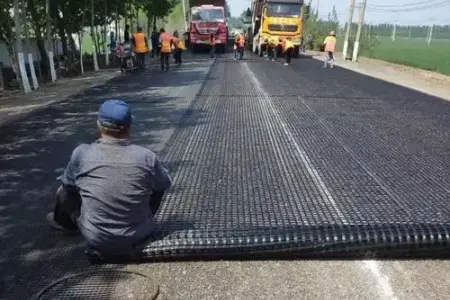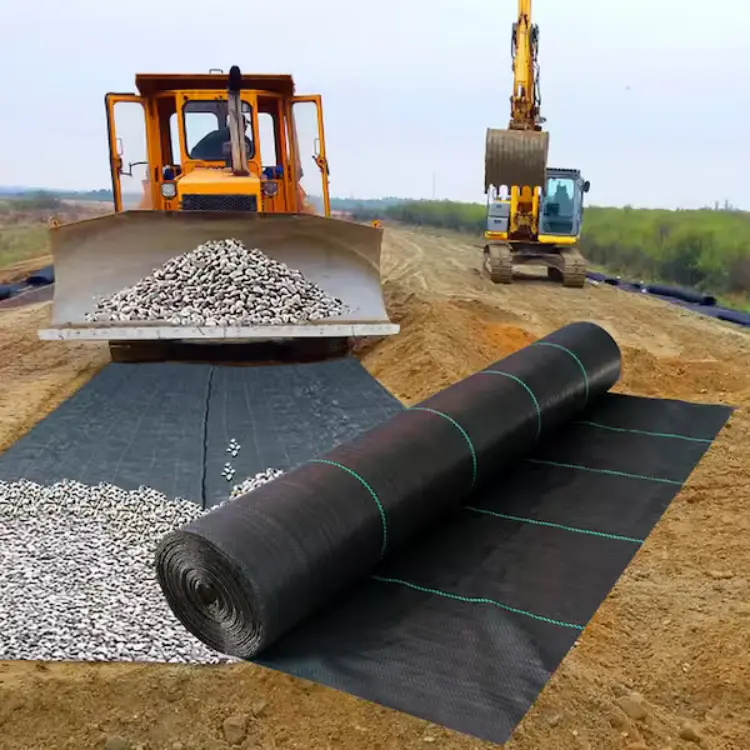1. Importance of Pavement and Bridge Deck Waterproofing & Crack Prevention
Rapid socio-economic development has intensified traffic volume and overloaded vehicles, causing pavement/bridge deck cracking and water seepage. This leads to critical issues like concrete corrosion, surface spalling, deck end fragmentation, and void formation. Water infiltration accelerates structural deterioration, severely compromising load-bearing capacity while undermining safety and longevity. Implementing robust waterproofing and anti-cracking systems is therefore essential for infrastructure integrity.

2. Material Selection for Pavement/Bridge Deck Waterproofing & Crack Control
Polyester fiberglass cloth and filter-composite geogrids are recommended for highway crack prevention.
3. Production and Testing Equipment for Key Materials
3.1 Polyester Fiberglass Cloth
- Product Description: An innovative composite geosynthetic material manufactured via wet-laid nonwoven technology, resembling paper-like nonwoven fabric.
- Key Features:
✅ Reliable waterproofing;
✅ Crack resistance;
✅ Recyclability. - Applications:
- Asphalt concrete overlays;
- Cement pavement rehabilitation;
- Shrinkage crack repair in semi-rigid bases;
- Bridge deck waterproofing;
- Highway expansion projects;
- Anti-crack membranes for building walls.
3.2 Filter-Composite Geogrid (Hongxiang Patent: ZL201120132826.5)
 3.3 Bridge Expansion Joints
3.3 Bridge Expansion Joints
- Product Description: Installed between beam ends or bridge abutments to accommodate structural movement. Designed for bidirectional flexibility (parallel/perpendicular to bridge axis), ensuring secure deformation absorption under traffic loads.
3.4 Polypropylene Short-Fiber Nonwoven Geotextile
- Product Description: Manufactured from ultra-high-strength PP or ES fibers using nonwoven technology. Functions include isolation, reinforcement, protection, filtration, drainage, and cushioning.
3.5 HDPE Geomembrane
- Product Description: Engineered from specially formulated virgin resin via blown-film extrusion, delivering smooth, biaxial surfaces for impermeability.